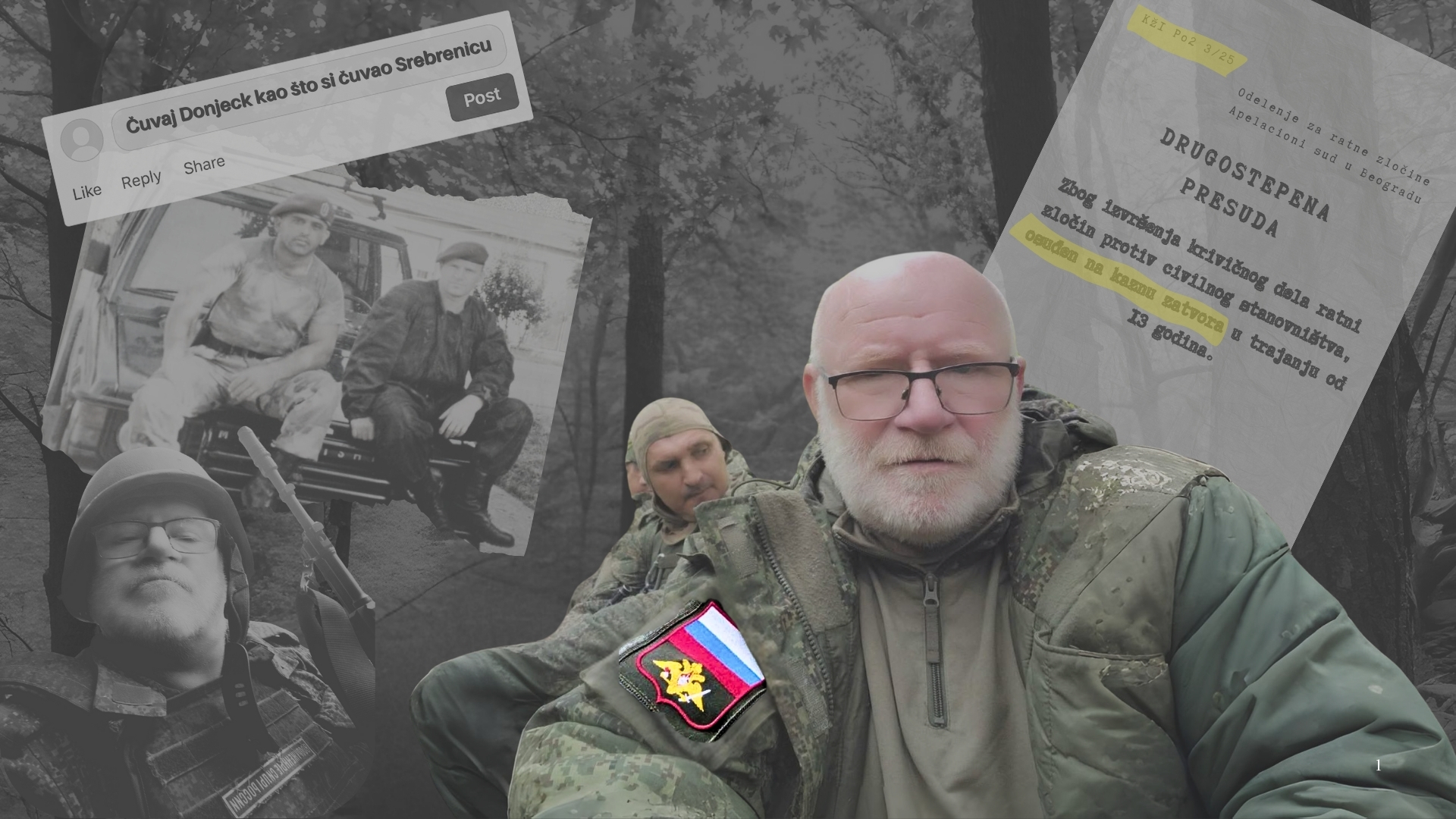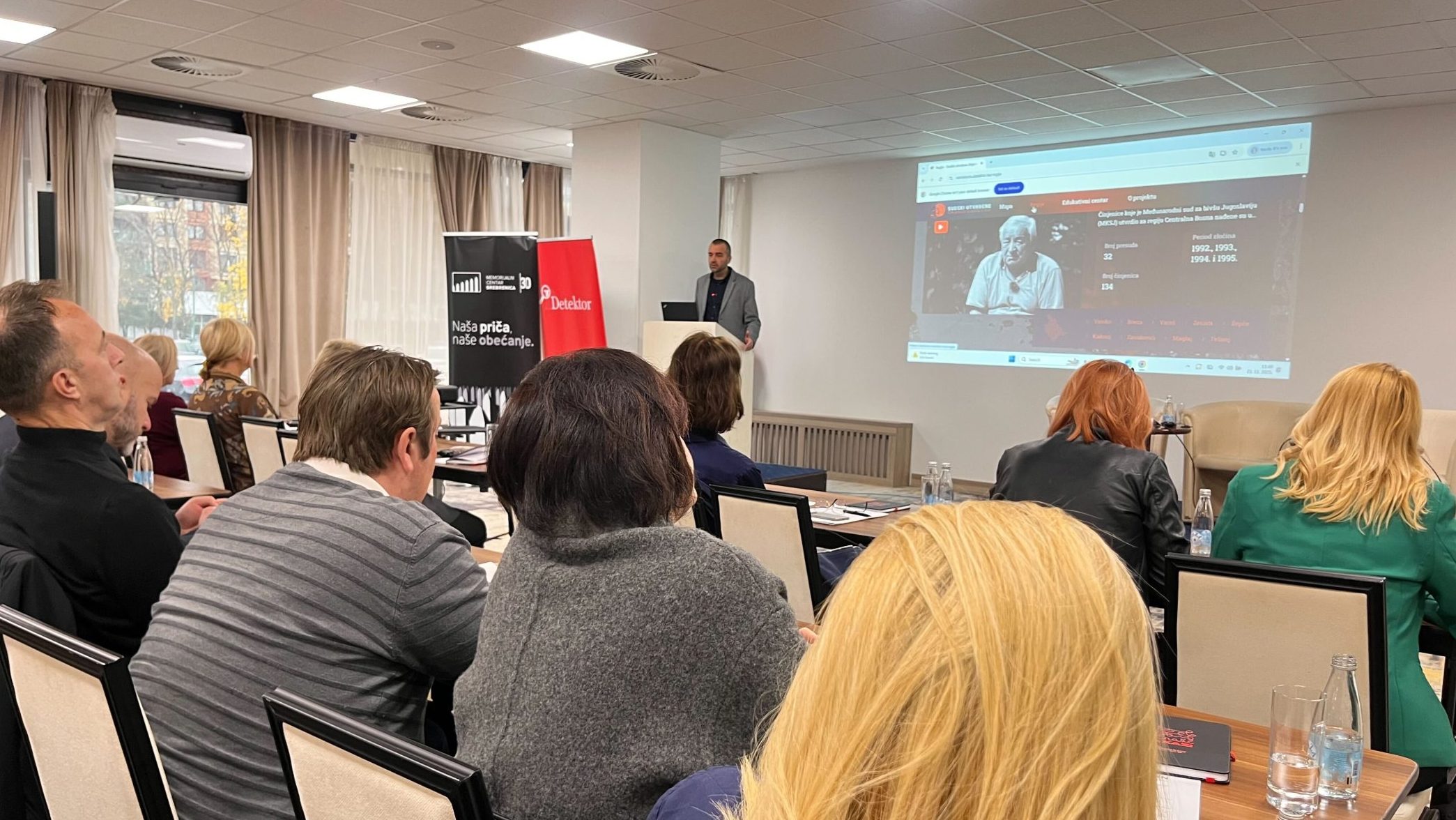This post is also available in: Bosnian
Former state prosecutor Munib Halilovic said the disciplinary procedure initiated against him was an attack on Bosnia’s national strategy for processing war crimes. Halilovic is facing the High Judicial and Prosecutorial Council’s (HJPC) disciplinary commission on charges of failing to investigate a war crimes case.
At the start of today’s hearing at the disciplinary commission, Halilovic said he acted within the strategy’s guidelines, which requires prosecutors to prioritize complex and sensitive cases. Since the strategy was adopted in 2008, Halilovic said, the state prosecution has been under pressure to prioritize such cases, at the expense of others.
“If you are complaining about someone implementing the strategy and not those who ignore it by prioritizing lesser cases, that sends a message to all prosecutors. If this case against me is accepted, then any future request by the HJPC asking the Bosnian state prosecution to prioritize more complex cases will be ridiculous,” Halilovic said.
Disciplinary prosecutor Mirza Hadziomerovic introduced material evidence at the hearing, which she said demonstrated that Halilovic failed to work on a war crimes case which was assigned to him.
Hadziomerovic also presented a report by the state prosecution which indicated that the complex cases Halilovic worked on between 2007-2013 were only partially completed.
Halilovic said the evidence still served to prove he was “one of the best prosecutors in the state prosecution.”
“I worked only upon requests from the HJPC, the state prosecution and the advisory board charged with monitoring the implementation of the strategy. They all said to focus on complex cases. I didn’t make a mistake, and if I did than my accomplices are all of the managing directors of these judicial institutions,” Halilovic said.
Halilovic called upon Milorad Novkovic, the former president of the advisory board charged with monitoring the implementation of the strategy, to testify in his defense. He also invited Vesna Budimir, the former head of the state prosecution war crimes department, to testify in his defense.
Novkovic said that the advisory board had been pressuring the state prosecution to prioritize complex cases since 2009.
“The strategy is a binding document. It was adopted because there was fear that prosecutors would pick lesser cases and ignore complex cases, and those complex cases are what interests the public most and which can lead to reconciliation,” Novkovic said.
Novkovic said he believed the state prosecution still hadn’t clearly divided high priority cases and low priority cases, although seven years have passed since the strategy was adopted in December 2008.
“If I were a prosecutor I would do my job in exactly this way. I would prioritize complex cases and then work on the less complex ones. The strategy gives seven year deadline for complex cases and 15 years for the less complex cases, so this is only logical,” Novkovic said.
Budimir said that when she ran the war crimes department between 2010-2014, she focused on more complex war crimes cases and said Halilovic “was one of the few she never had problems with.”
“In my time, prosecutors needed to get a new indictment signed by myself and the chief prosecutor before filing it for confirmation. I rejected indictments several times, since they weren’t complex cases, despite the fact that prosecutors needed those documents for their annual quotas. However, later I would find out from the media that those indictments were sent for confirmation,” she said, adding that Halilovic never filed such indictments.
After the witnesses were questioned, Halilovic said he had been waiting to find out about the details of the charges laid against him for months.
“They obviously have a problem with being closed,” Halilovic said in reference to the HJPC disciplinary commission.
Former chief state prosecutor Milorad Barasin was scheduled to testify at this hearing, but did not attend. The disciplinary procedure will continue at a later date. Barasin is expected to testify at the next hearing.


